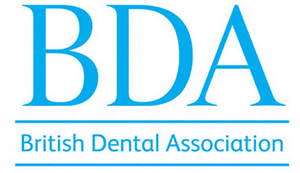Request an appointment
For dental appointments, please fill in the form below and we will call you back or email you to confirm your appointment.
Smoking and oral health
How can smoking affect my oral health?
Most people now know that smoking is bad for their health.
It can cause many different health problems and, in some cases, fatal diseases. However, many people don’t realise the damage that smoking does to their mouth, gums and teeth.
Smoking can lead to tooth staining, gum disease, tooth loss and – more seriously – mouth cancer.
Why are my teeth stained?
One of the effects of smoking is staining on the teeth due to the nicotine and tar in tobacco. It can make the teeth yellow in a very short time, and heavy smokers often complain that their teeth are almost brown after years of smoking.
How will smoking affect my gums and teeth?
People who smoke are more likely to have gum disease. Smoking may change the type of bacteria in dental plaque, increasing the number of bacteria that are more harmful. It also reduces the blood flow in the gums and supporting tissues of the tooth and makes them more likely to become inflamed. Smokers’ gum disease will get worse more quickly than in people who do not smoke. Because of the reduced blood flow smokers may not get the warning symptoms of bleeding gums as much as non-smokers. Gum disease is still the most common cause of tooth loss in adults.
How is smoking linked with cancer?
Most people know that smoking can cause lung and throat cancer, but many people still don’t realise that it is one of the main causes of mouth cancer too. There are more and more new cases of mouth cancer each year, and thousands die every year from the disease. (See our leaflet ‘Tell Me About Mouth Cancer‘).
Are there special dental products I can use?
There are special toothpastes for people who smoke. They are sometimes a little more abrasive than ordinary pastes and you need to use them with care. Your dentist may recommend that you use these toothpastes alternately with your usual toothpaste, for example by using a special toothpaste in the morning and your ordinary one at night.
There are several whitening toothpastes on the market. Although they do not affect the natural colour of your teeth, they may be effective at removing staining. Therefore they may improve the overall appearance of your teeth.
What about mouthwashes?
People who smoke may find they are more likely to have bad breath than non-smokers. Fresh-breath products such as mouthwashes may help to disguise the problem in the short term, but that is all they will do.
How often should I visit my dentist?
It is important that you visit your dentist regularly, both for a normal checkup and a full mouth examination so that any other conditions can be spotted early.
You should visit your dentist regularly, as often as they recommend. People who smoke are more likely to have stained teeth and gum disease, and therefore may need appointments more often with the dental hygienist.
What can my dentist do for me?
Your dentist will carry out a regular examination to make sure that your teeth and gums and whole mouth are healthy.
Your dentist will also examine your cheeks, tongue and throat for any signs of other conditions that may need more investigation.
They may also be able to put you in touch with organisations and self- help groups who will have the latest information to help you stop smoking.
Will I need any extra treatment?
Your dentist may also refer you to a dental hygienist for further treatment, thorough cleaning and to keep a closer check on your oral hygiene.
Your dental hygienist will be able to advise you on how often you should visit them, although this should usually be every three to six months.
Source: British Dental Health Foundation
Book an appointment at Dentistry For You
To start your journey to a new smile book an appointment with us today.
Why Dentistry For You?
- Established over 35 Years
- NHS & private dental care
- High quality treatments provided by experienced dentists
- In house quality assurance programme
- Over 2700 patient reviews across all locations
- All our practices are wheelchair friendly
Patient satisfaction is very important to us





